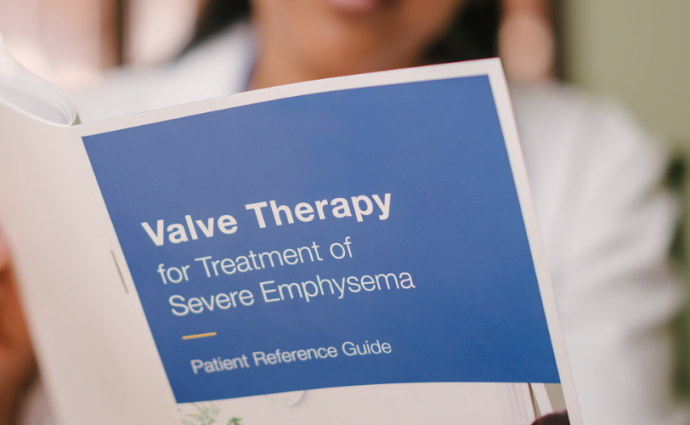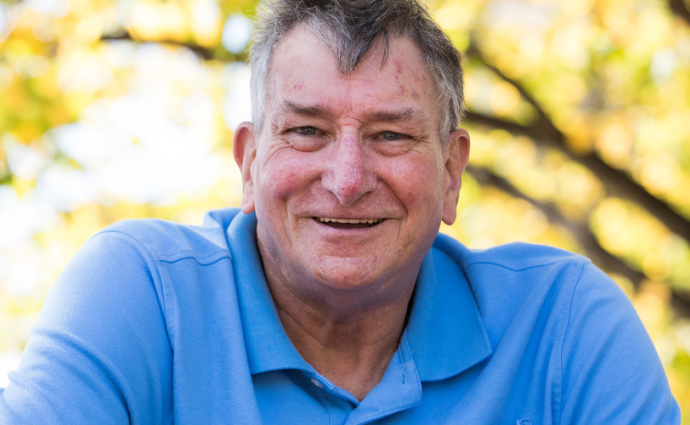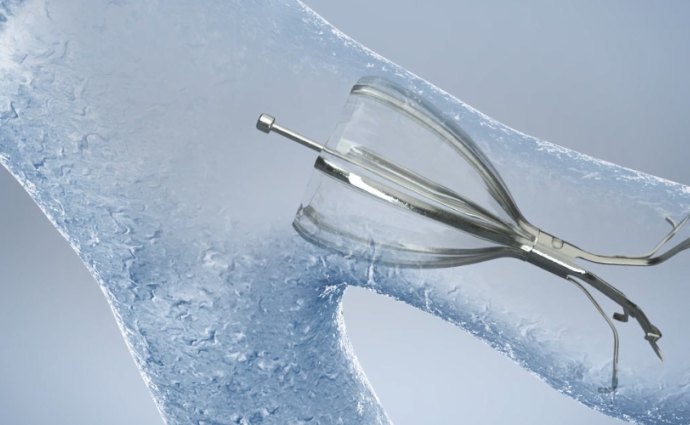Emphysema has taken
control for too long.
Reduce your symptoms and restore your quality of life.
Endobronchial valve therapy with the Spiration® Valve System offers a new, minimally-invasive treatment option for severe emphysema patients. For appropriate patients, the Spiration Valve System has been shown in clinical trials to provide clinically meaningful improvements in lung function, shortness of breath, and overall quality of life.
Join the Conversation
Connect with us on Facebook to join the conversation about the Spiration Valve System. If you’ve had a great experience with the Spiration Valve System, we would love to hear your story.
Frequently Asked Questions
Can the Spiration Valve System be used to treat Alpha-1 Antitrypsin Deficiency?
Yes, the Spiration Valve has been studied and shown to benefit these patients. Spiration Valve placement resulted in improvements in lung function, quality of life, and shortness of breath.1
How many valves will the doctor place in me?
Every person’s lungs are different. On average, four Spiration Valves are implanted per procedure.
How long will the procedure take?
The bronchoscopy procedure used to place the Spiration Valve usually takes less than one hour but may take up to two hours.
How long will it stay implanted in me? Is the procedure reversible?
The Spiration Valve is intended to be permanent, however it’s designed to allow removal, if necessary.
Will I be able to feel the Spiration Valve in my lung?
No, you will not be able to feel the Spiration Valve after it’s been placed in your lung.
Can it be coughed out?
In Spiration Valve clinical trials, no patients have coughed out a Spiration Valve However, in a rare case, a valve may be coughed out.
Does the doctor ever need to go back to check on them?
Yes. As part of your regular follow-up visits with your doctor (pulmonologist), they will examine the effect of the valve therapy. Your doctor may want to inspect your valves using a bronchoscope.
When will I feel better after the procedure?
The amount of time that it takes to feel better after your procedure varies from patient to patient. You should discuss how you are feeling regularly with your doctor.
What is the expected length of recovery from the procedure? When can I go back to normal activities?
Although you may feel much better after the procedure, it’s very important to allow your lungs to adjust to the recent procedure so that you don’t suffer any setbacks. Follow your doctor’s instructions, including any plans to rest and limit activity after the procedure.
Will I be able to stop or decrease using my oxygen and other COPD medications?
Although you may feel better after receiving the Spiration Valves, always consult your doctor before you make any changes to using oxygen and COPD medications. Valve therapy is not a substitute for treatment of COPD by medication or oxygen therapy.
What happens when I go through security at the airport?
The Spiration Valve will not set off the metal detectors used by airport security.
1. Criner GJ, Delage A, Voelker K. Late Breaking Abstract - Endobronchial Valves for Severe Emphysema – 12-month Results of the EMPROVE Trial. Eur Respir J. 2018;52(suppl 62). doi:10.1183/13993003.congress-2018.OA4928







